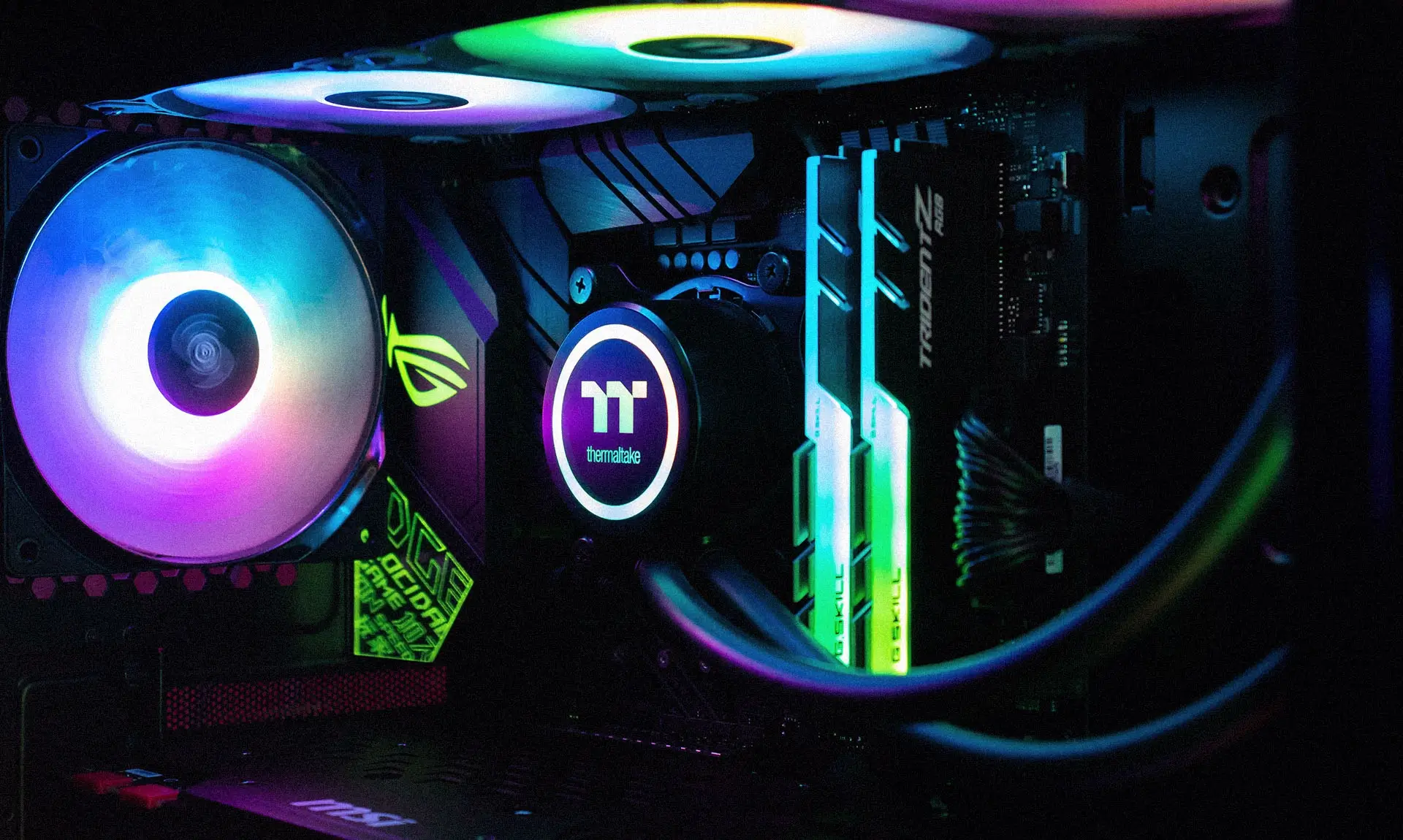What is a Cooler?
A cooler, in the context of computing, is a device designed to dissipate heat generated by various components within a computer. Effective cooling is essential to prevent overheating, which can lead to reduced performance, hardware damage, or system failures.
Types of Coolers
Air Coolers
Air coolers are the most common type of cooling solution and use air to transfer heat away from computer components. They consist of a heat sink and a fan.
- Heat Sink: Made of metal (usually aluminum or copper), the heat sink absorbs heat from the CPU or GPU. Its design typically includes fins to increase surface area for better heat dissipation.
- Fan: Attached to the heat sink, the fan blows air over the heat sink's fins, carrying away the absorbed heat. This airflow helps keep temperatures in check.
Pros:
- Generally cost-effective
- Easier to install
- Low maintenance
Cons:
- May be less effective in overclocked or high-performance systems
- Can be noisy depending on fan speed and quality
Liquid Coolers
Liquid coolers use a liquid coolant to transfer heat away from the components. The system includes a pump, radiator, and fans.
- Pump: Circulates the coolant through the system.
- Radiator: The coolant passes through the radiator, where heat is transferred to the radiator’s fins.
- Fans: Attached to the radiator, fans blow air through the fins to dissipate heat.
Pros:
- More efficient cooling for high-performance and overclocked systems
- Can be quieter than air coolers
- Allows for better airflow in the case, as the radiator can be mounted in different locations
Cons:
- Higher cost compared to air coolers
- More complex installation
- Potential for leaks or maintenance issues
Hybrid Coolers
Hybrid coolers combine air and liquid cooling technologies. They typically use a liquid cooling system for the initial heat transfer and an air cooler for secondary cooling.
Pros:
- Offers the advantages of both air and liquid cooling
- Efficient cooling with reduced noise
Cons:
- More expensive and complex than single technology solutions
- Requires careful installation and maintenance
Why is a Cooler Important?
Preventing Overheating
Heat is a byproduct of electrical activity within computer components. Overheating can cause thermal throttling, where the system reduces performance to prevent damage. Effective cooling helps maintain optimal temperatures, ensuring consistent performance and preventing automatic downclocking.
Enhancing Performance
Components such as CPUs and GPUs generate more heat when running at higher loads or during overclocking. A well-designed cooler allows these components to operate at higher speeds without overheating, which can significantly enhance performance and responsiveness.
Extending Component Lifespan
Excessive heat can accelerate wear and tear on computer components, leading to premature failure. Proper cooling helps maintain lower temperatures, reducing stress on the hardware and extending its lifespan.
Reducing Noise
Effective cooling can help reduce noise levels. While some fans and pumps can be noisy, efficient cooling solutions often operate more quietly by using advanced designs and better-quality components. Liquid coolers, in particular, tend to be quieter than traditional air coolers.
Maintaining System Stability
Overheating can lead to system crashes, instability, or unexpected shutdowns. By keeping temperatures in check, a cooler ensures stable operation, reducing the risk of system failures and data loss.
Improving Aesthetic Appeal
For many enthusiasts, coolers are not just functional but also a part of the computer’s aesthetic. Modern coolers come with customizable RGB lighting and sleek designs, enhancing the visual appeal of the system.
Choosing the Right Cooler
When selecting a cooler, consider the following factors:
Compatibility: Ensure the cooler is compatible with your motherboard socket and fits within your case. Check the dimensions and mounting options before purchase.
Performance Needs: For standard computing tasks, an air cooler may suffice. For gaming or overclocking, a liquid cooler or a high-performance air cooler might be necessary.
Noise Levels: Consider the noise levels of the cooler. Some coolers are designed to be virtually silent, while others may produce noticeable noise.
Budget: Balance your budget with performance needs. Air coolers are generally more affordable, while liquid coolers and hybrid solutions can be more expensive.
Conclusion
A cooler is a vital component in maintaining the performance and longevity of your computer system. Whether you opt for an air cooler, liquid cooler, or hybrid solution, understanding the role of cooling and selecting the right type for your needs can make a significant difference in your computing experience. Effective cooling prevents overheating, enhances performance, extends component lifespan, and contributes to overall system stability. By choosing the appropriate cooler, you ensure that your computer operates efficiently and reliably, meeting your performance expectations and budget constraints.

